The Japanese PM's visit to India is extremely important in light of ongoing process of bilateral political, security and economic co-operation.
The Prime Minister of Japan, Mr. Shinzo Abe will be visiting India on August 21st, 22nd and 23rd, 2007. According to the information available with us he will be making a speech at Parliament and he will have a bilateral summit with the Indian Prime Minister Dr. Manmohan Singh. A joint communiqué or statement may be issued based on the meeting.
On the 23rd Mr. Shinzo Abe will go from Delhi to Kolkata and participate in the inauguration of the Indo-Japan Cultural Centre and visit Tagore House before leaving India.
Heightened Significance: We think that the Japanese Prime Minister's visit to India is extremely important in light of the ongoing process of bilateral political, security and economic co-operation between the two countries.
You may be aware that since the start of this century - the year 2000 - the bilateral relations between our two countries changed dramatically, between government to government in particular. In 2005, the Japanese Prime Minister visited India and last year, the Indian Prime Minister visited Japan. This year, as part of the ongoing process
the Prime Minister of Japan, Mr. Shinzo Abe is coming to India.
This highest level exchange is very important to cement bilateral relationships and give the process some momentum. We have agreed to promote bilateral Strategic and Global Partnership and launched wide-ranging initiatives in the political, defence, economic, science and technology, cultural, academic and multilateral fields.
All over these initiatives are proceeding very smoothly. The exchange of visits of cabinet ministers is conducted frequently.
Key Partnerships: Enhancing the comprehensive economic partnerships is another priority; one of the very important agendas is to conclude the Economic Partnership Agreement. We have already conducted three rounds of negotiations on an official level. Last June we had the third round of negotiations and in autumn we are going to have the fourth round.
We are trying to complete negotiations as expeditiously as possible. We are also co-operating on the development of infrastructure projects in India. Feasibility studies are being conducted by JICA for the Dedicated Freight Corridor project between Delhi and Mumbai. We hope to get final report by end of October this year. The two governments will look at how best we can help and realize this project. This project is going to be very important for India, improving infrastructure between the two key mega cities.
Specific Collaborations: The development of Industrial Corridor between Delhi and Mumbai is a much more huge infrastructure project and it is going to involve the private sector. According to preliminary reports, it's going to be a mega project, approximately 90 billion USD.
There are plans to build a cluster of industrial zones and also develop infrastructure like a new port and a new road, so the expenses are going to be huge. This project will involve the government sector and the private sector; it will be a 'public-private partnership (PPP) project. We are awaiting a clear concept paper without which we cannot proceed.
Economic partnerships are ongoing in the area of human resource development for the manufacturing industry of India. It was agreed last year that under the visionary leaders for manufacturing programme, Japanese style management systems and skills will be transferred to the Indian manufacturing sector through seminars and technical co-operation.
Two sessions are being held, one at Kolkata in August and the other at Mumbai in September. Japanese management experts will be coming and conducting some seminars. The people-to-people exchange is also very important in order to substantiate the bilateral strategic partnership.
We want to expand our people-to-people exchange. Initiatives are on the way in the civil aviation sector by increasing the current frequency of flights between Tokyo and Delhi. ALL Nippon Airways (ANA) plans to start daily non-stop Tokyo-Mumbai flights from September, which is very good news.
Forging Bonds: Maharashtra and Okayama prefecture of Japan have reached the understanding to promote sister-state relationships. This is not yet formalised but the Maharashtra Chief Minister expected to proceed to Japan in order to sign and formalise the relationship.
We are eagerly awaiting the visit of Chief Minister Vilasrao Deshmukh to Japan. Already, without any formal agreement a substantial exchange at grassroot level has happened. In Pune, a wonderful Japanese garden has been created with the assistance by Okayama prefecture, which is perhaps the best Japanese garden in India.
There is also the Japan Exchange Teachers programme. We invite Indian English teachers to advise English education in Japan. Two young teachers from Maharashtra have recently gone to Japan to teach English in Japanese classes.
Environmental Concerns: In terms of multilateral cooperation, environmental issues, particularly global warming is the most important item on the international agenda. In May, Prime Minister Shizo Abe has proposed to reduce greenhouse gas emissions of the entire world to half the current levels by the year 2050. This is a very ambitious and important initiative. The Kyoto protocol is only up to 2012, there is no framework beyond that.
Our Prime Minister's initiative intends to set a long term target of cutting greenhouse gas emissions of the entire world by half from the current levels by the year 2050. Our Prime Minister's initiative on global warming is likely to be taken up at summit meetings.
Economic Engagement: On the issue of Indo-Japan bilateral trade, India is viewed internationally as a land of opportunity. It has achieved tremendous growth of over 8% in the last three years and this is expected to continue in the future. Japanese business people are starting to increase their activities and presence in India. There are 360 Japanese business companies in India currently, about 80 of which are in Maharashtra.
The total number may not be so important but if we look at the trend in Maharashtra - there were 69 companies in June 2006 and 43 in January 2006 - it has almost doubled.
Japanese direct investment in India has also gone up, in 2005 it was slightly less than 300 million USD; in 2006 it witnessed a jump of almost 90% to 512 million USD. Expectations are that by the next five years, Japanese direct investment in India will be five billion USD!
This year happens to be designated Japan-India friendship year as it is the 50th anniversary of the cultural agreement between Japan and India. It is a good opportunity to improve the cultural exchange.
At the next Mumbai festival, we are participating. Several groups are expected to come from Japan. We need to promote more cultural exchange between the two countries.
We have a roadmap for developing bilateral relations between the two countries and that is where we are proceeding very well at this moment.
Lasting Impressions: Mumbai is the largest city in India, very energetic, vibrant, culturally active and active from the business aspect also. What I find very interesting is the cosmopolitan nature of the city where the different types of people one can meet here, from various parts of India and all over the world.
Traffic is a problem here. The city needs to have more Japanese restaurants and golf courses if it wants to attract more Japanese businesses. I would love to travel more in India, looking forward to visiting some of the very fine historical monuments in Maharashtra and Madhya Pradesh during my tenure.
![submenu-img]() Meet man who once suffered loss of Rs 15 crore, then built Rs 2000 crore turnover company at 60, he is…
Meet man who once suffered loss of Rs 15 crore, then built Rs 2000 crore turnover company at 60, he is…![submenu-img]() 'They did her dirty': Aishwarya Rai fans criticise stylist for her 'failed art project' outfit on Cannes red carpet
'They did her dirty': Aishwarya Rai fans criticise stylist for her 'failed art project' outfit on Cannes red carpet![submenu-img]() Woman walks on the streets of Tokyo in saree, viral video shows people’s reaction
Woman walks on the streets of Tokyo in saree, viral video shows people’s reaction![submenu-img]() Blinkit offering ‘free dhaniya’ with vegetable orders, people now asking for free…
Blinkit offering ‘free dhaniya’ with vegetable orders, people now asking for free…![submenu-img]() Kartam Bhugtam: Shreyas Talpade-starrer is a riveting dive into the unknown
Kartam Bhugtam: Shreyas Talpade-starrer is a riveting dive into the unknown![submenu-img]() Meet PhD wife of IIT graduate hired at Rs 100 crore salary package, was fired within a year, he is now…
Meet PhD wife of IIT graduate hired at Rs 100 crore salary package, was fired within a year, he is now…![submenu-img]() Meet woman not from IIT, IIM or NIT, cracked UPSC exam in first attempt with AIR...
Meet woman not from IIT, IIM or NIT, cracked UPSC exam in first attempt with AIR...![submenu-img]() Maharashtra Board Results 2024: MSBSHSE class 10th, 12th results soon, know how to check results via SMS
Maharashtra Board Results 2024: MSBSHSE class 10th, 12th results soon, know how to check results via SMS![submenu-img]() Meet Indian genius who became world’s 'youngest' surgeon at 7, worked in IIT for...
Meet Indian genius who became world’s 'youngest' surgeon at 7, worked in IIT for...![submenu-img]() Meet Kashmir boy, who is JEE topper, wants to pursue Computer Science, he aims to clear...
Meet Kashmir boy, who is JEE topper, wants to pursue Computer Science, he aims to clear...![submenu-img]() DNA Verified: Is CAA an anti-Muslim law? Centre terms news report as 'misleading'
DNA Verified: Is CAA an anti-Muslim law? Centre terms news report as 'misleading'![submenu-img]() DNA Verified: Lok Sabha Elections 2024 to be held on April 19? Know truth behind viral message
DNA Verified: Lok Sabha Elections 2024 to be held on April 19? Know truth behind viral message![submenu-img]() DNA Verified: Modi govt giving students free laptops under 'One Student One Laptop' scheme? Know truth here
DNA Verified: Modi govt giving students free laptops under 'One Student One Laptop' scheme? Know truth here![submenu-img]() DNA Verified: Shah Rukh Khan denies reports of his role in release of India's naval officers from Qatar
DNA Verified: Shah Rukh Khan denies reports of his role in release of India's naval officers from Qatar![submenu-img]() DNA Verified: Is govt providing Rs 1.6 lakh benefit to girls under PM Ladli Laxmi Yojana? Know truth
DNA Verified: Is govt providing Rs 1.6 lakh benefit to girls under PM Ladli Laxmi Yojana? Know truth![submenu-img]() Aishwarya Rai Bachchan turns heads in intricate black gown at Cannes, walks the red carpet with injured arm in cast
Aishwarya Rai Bachchan turns heads in intricate black gown at Cannes, walks the red carpet with injured arm in cast![submenu-img]() Laapataa Ladies' Poonam aka Rachna Gupta looks unrecognisable in viral photos, amazes with jaw-dropping transformation
Laapataa Ladies' Poonam aka Rachna Gupta looks unrecognisable in viral photos, amazes with jaw-dropping transformation![submenu-img]() In pics: Taarak Mehta Ka Ooltah Chashmah actress Deepti Sadhwani dazzles in orange at Cannes debut, sets new record
In pics: Taarak Mehta Ka Ooltah Chashmah actress Deepti Sadhwani dazzles in orange at Cannes debut, sets new record![submenu-img]() Ananya Panday stuns in unseen bikini pictures in first post amid breakup reports, fans call it 'Aditya Roy Kapur's loss'
Ananya Panday stuns in unseen bikini pictures in first post amid breakup reports, fans call it 'Aditya Roy Kapur's loss'![submenu-img]() Remember Harsh Lunia? Just Mohabbat child star, here's how former actor looks now, his wife is Bollywood's popular...
Remember Harsh Lunia? Just Mohabbat child star, here's how former actor looks now, his wife is Bollywood's popular...![submenu-img]() Haryana Political Crisis: Will 3 independent MLAs support withdrawal impact the present Nayab Saini led-BJP government?
Haryana Political Crisis: Will 3 independent MLAs support withdrawal impact the present Nayab Saini led-BJP government?![submenu-img]() DNA Explainer: Why Harvey Weinstein's rape conviction was overturned, will beleaguered Hollywood mogul get out of jail?
DNA Explainer: Why Harvey Weinstein's rape conviction was overturned, will beleaguered Hollywood mogul get out of jail?![submenu-img]() What is inheritance tax?
What is inheritance tax?![submenu-img]() DNA Explainer: What is cloud seeding which is blamed for wreaking havoc in Dubai?
DNA Explainer: What is cloud seeding which is blamed for wreaking havoc in Dubai?![submenu-img]() DNA Explainer: What is Israel's Arrow-3 defence system used to intercept Iran's missile attack?
DNA Explainer: What is Israel's Arrow-3 defence system used to intercept Iran's missile attack?![submenu-img]() 'They did her dirty': Aishwarya Rai fans criticise stylist for her 'failed art project' outfit on Cannes red carpet
'They did her dirty': Aishwarya Rai fans criticise stylist for her 'failed art project' outfit on Cannes red carpet![submenu-img]() Kartam Bhugtam: Shreyas Talpade-starrer is a riveting dive into the unknown
Kartam Bhugtam: Shreyas Talpade-starrer is a riveting dive into the unknown![submenu-img]() Richa Chadha says Heeramandi co-star Sharmin Segal being trolled for her performance is 'audience’s right'
Richa Chadha says Heeramandi co-star Sharmin Segal being trolled for her performance is 'audience’s right'![submenu-img]() Meet only Indian actress whose film is competing for top prize at Cannes; not Aishwarya, Deepika, Kiara, Priyanka, Alia
Meet only Indian actress whose film is competing for top prize at Cannes; not Aishwarya, Deepika, Kiara, Priyanka, Alia![submenu-img]() How two heroines beat Rajinikanth, Vijay, Dhanush to give Tamil cinema's biggest hit of 2024; low-budget film earned...
How two heroines beat Rajinikanth, Vijay, Dhanush to give Tamil cinema's biggest hit of 2024; low-budget film earned...![submenu-img]() Woman walks on the streets of Tokyo in saree, viral video shows people’s reaction
Woman walks on the streets of Tokyo in saree, viral video shows people’s reaction![submenu-img]() Why Australians walk barefoot in public: Here’s the reason
Why Australians walk barefoot in public: Here’s the reason![submenu-img]() People in this country compete to see who’s best at doing nothing, here's why
People in this country compete to see who’s best at doing nothing, here's why![submenu-img]() Viral video: Influencer dressed as 'Manjulika' dances on crowded road, internet reacts
Viral video: Influencer dressed as 'Manjulika' dances on crowded road, internet reacts![submenu-img]() Viral video: Baby elephant receives 'Z-category security' during family nap in Tamil Nadu reserve
Viral video: Baby elephant receives 'Z-category security' during family nap in Tamil Nadu reserve
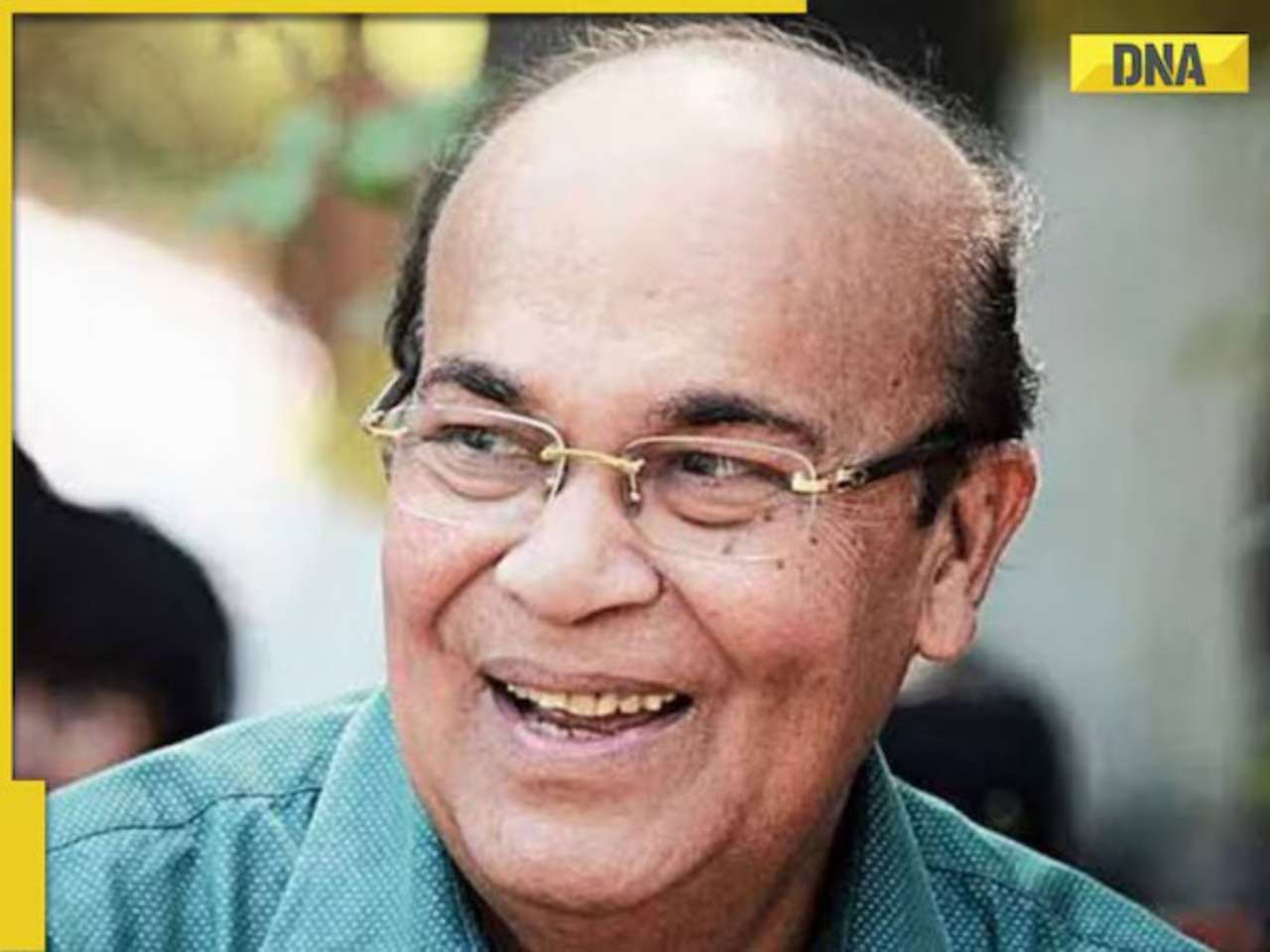











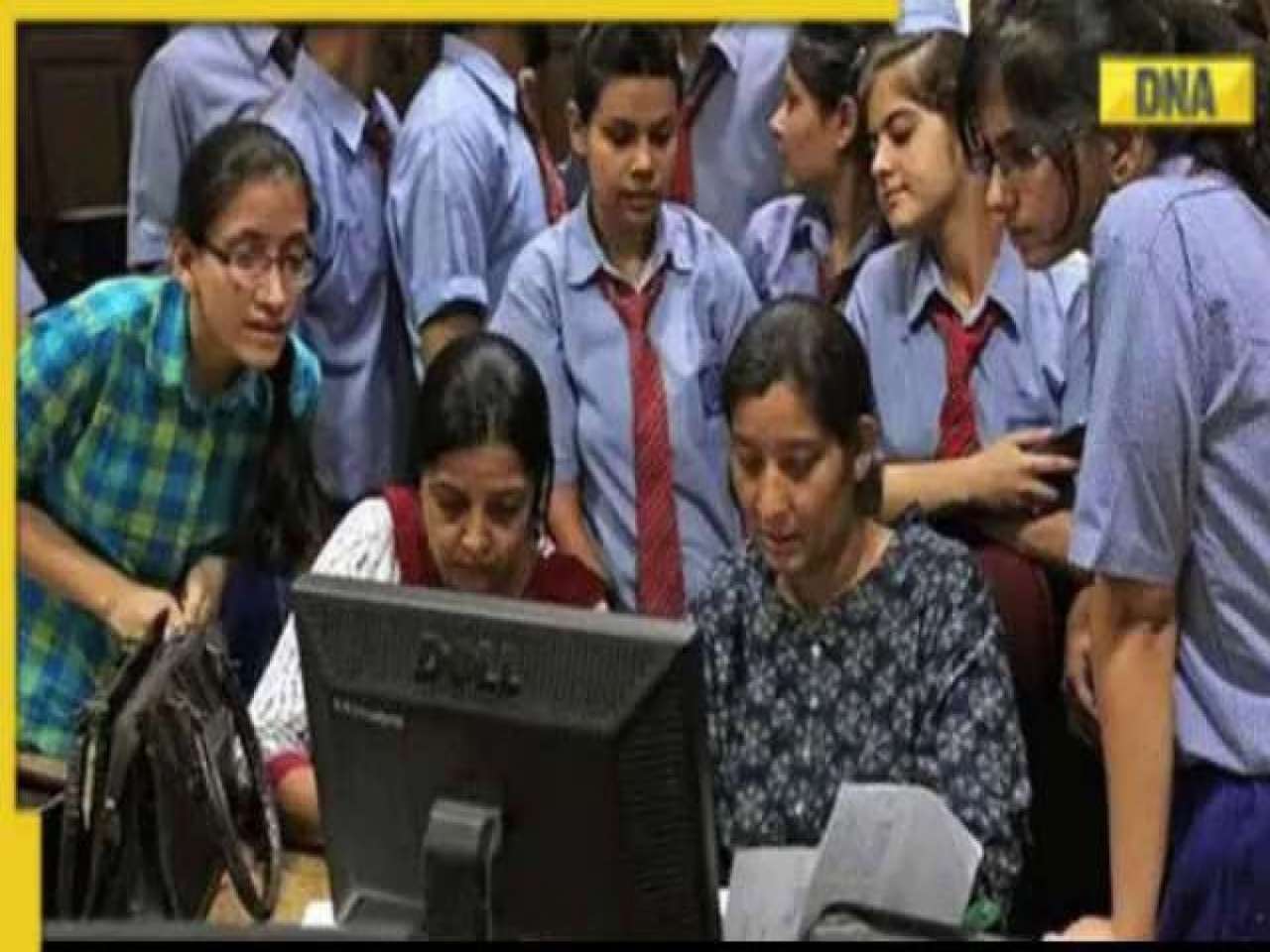

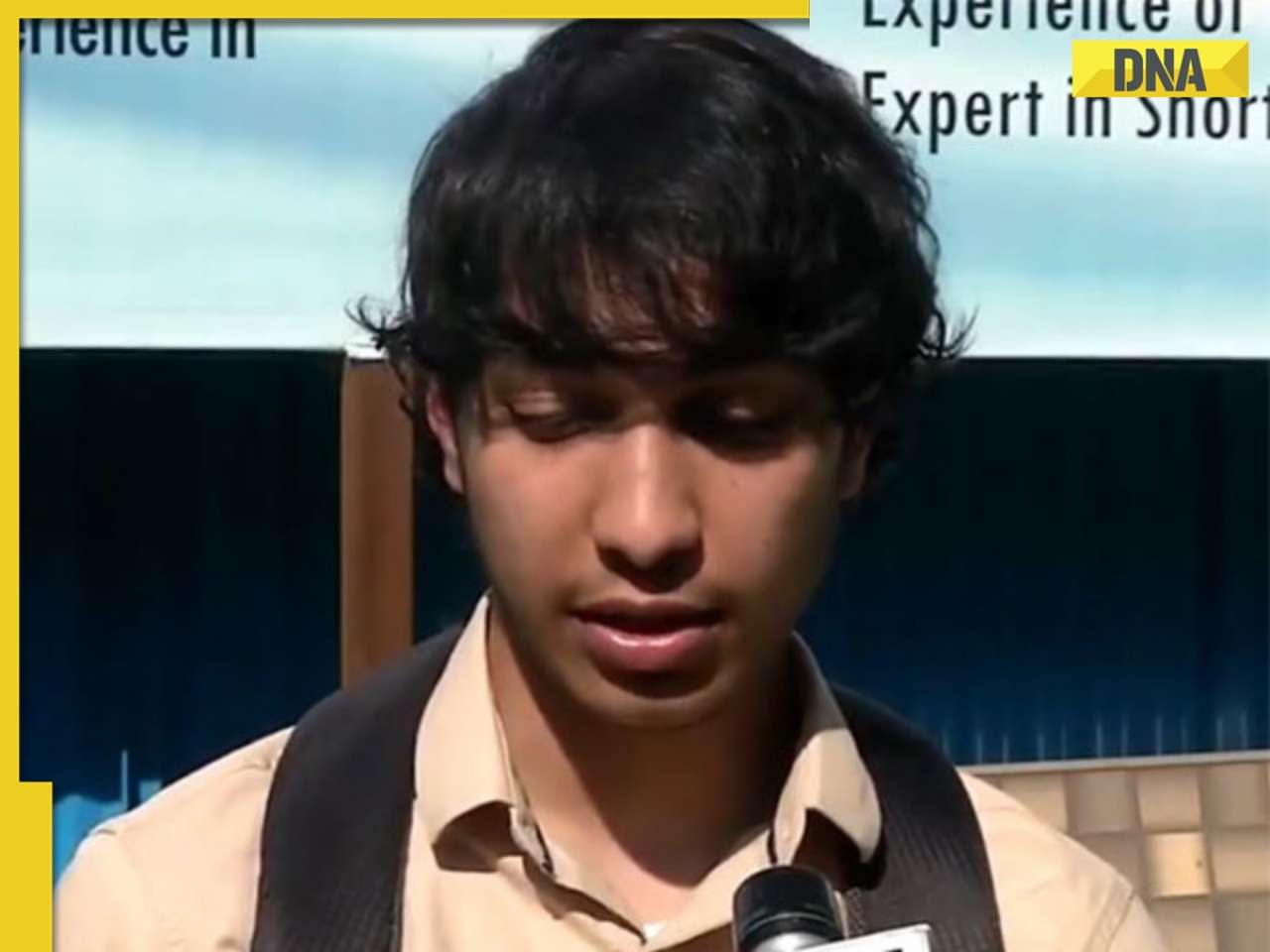



















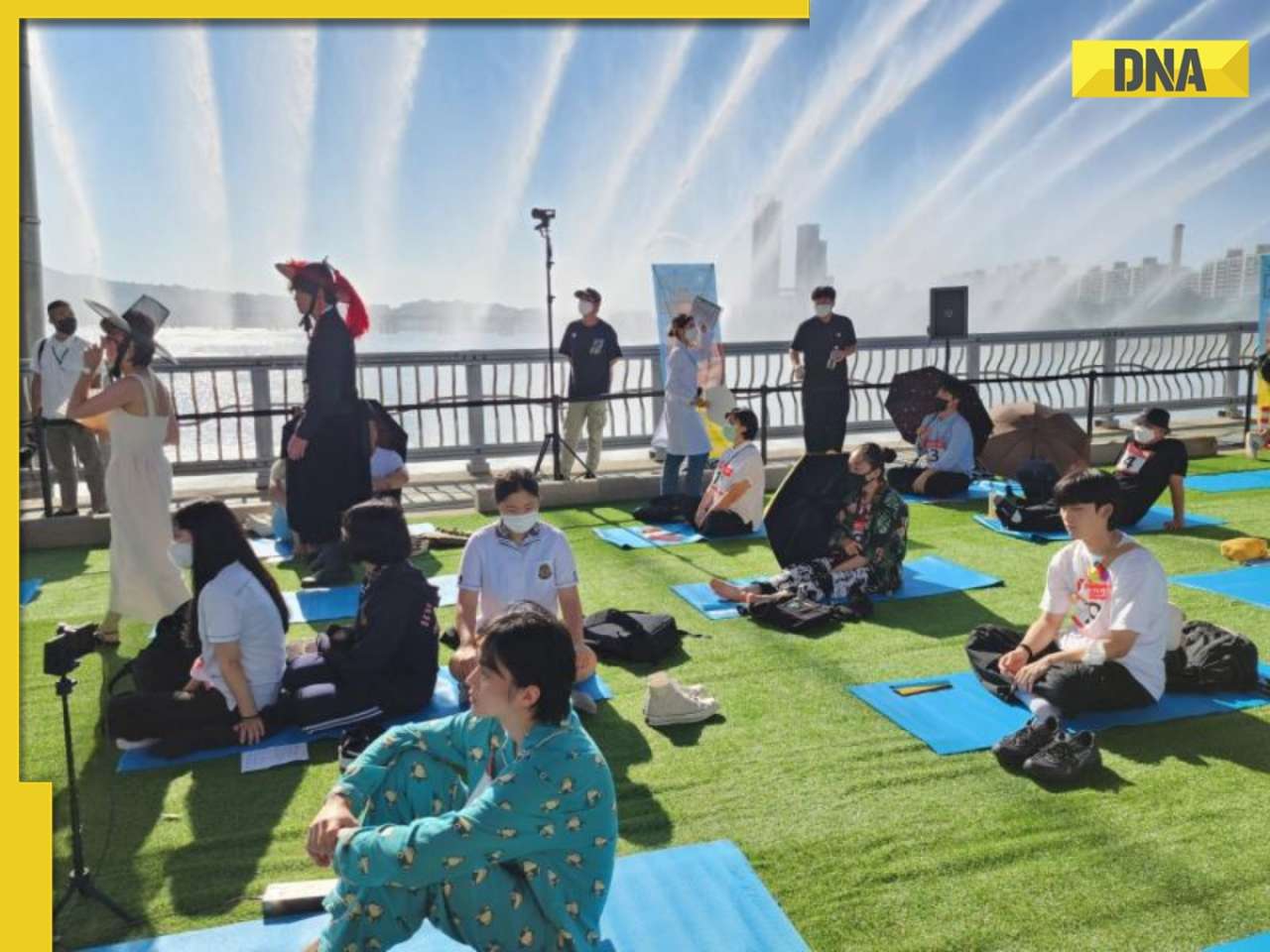
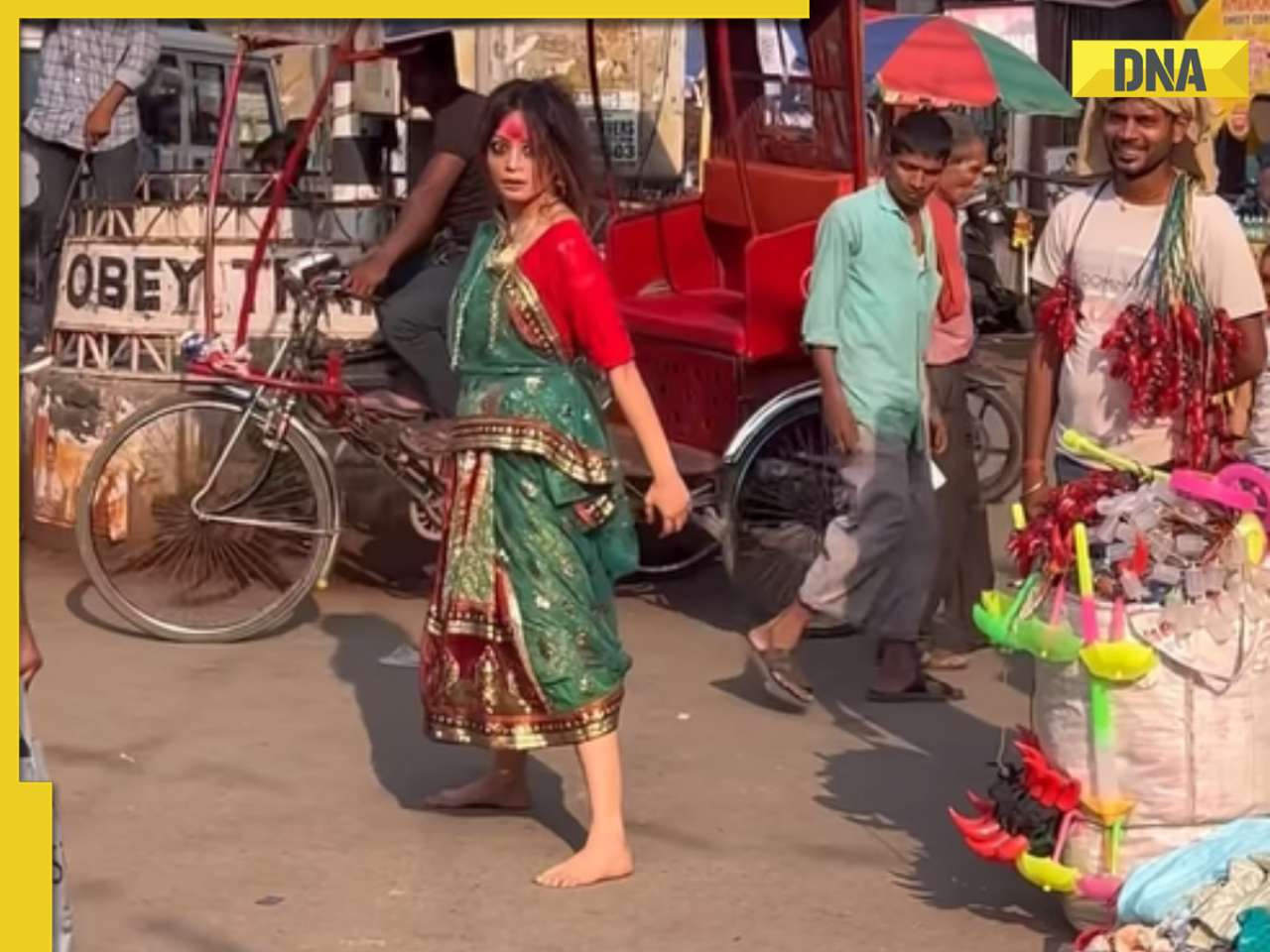








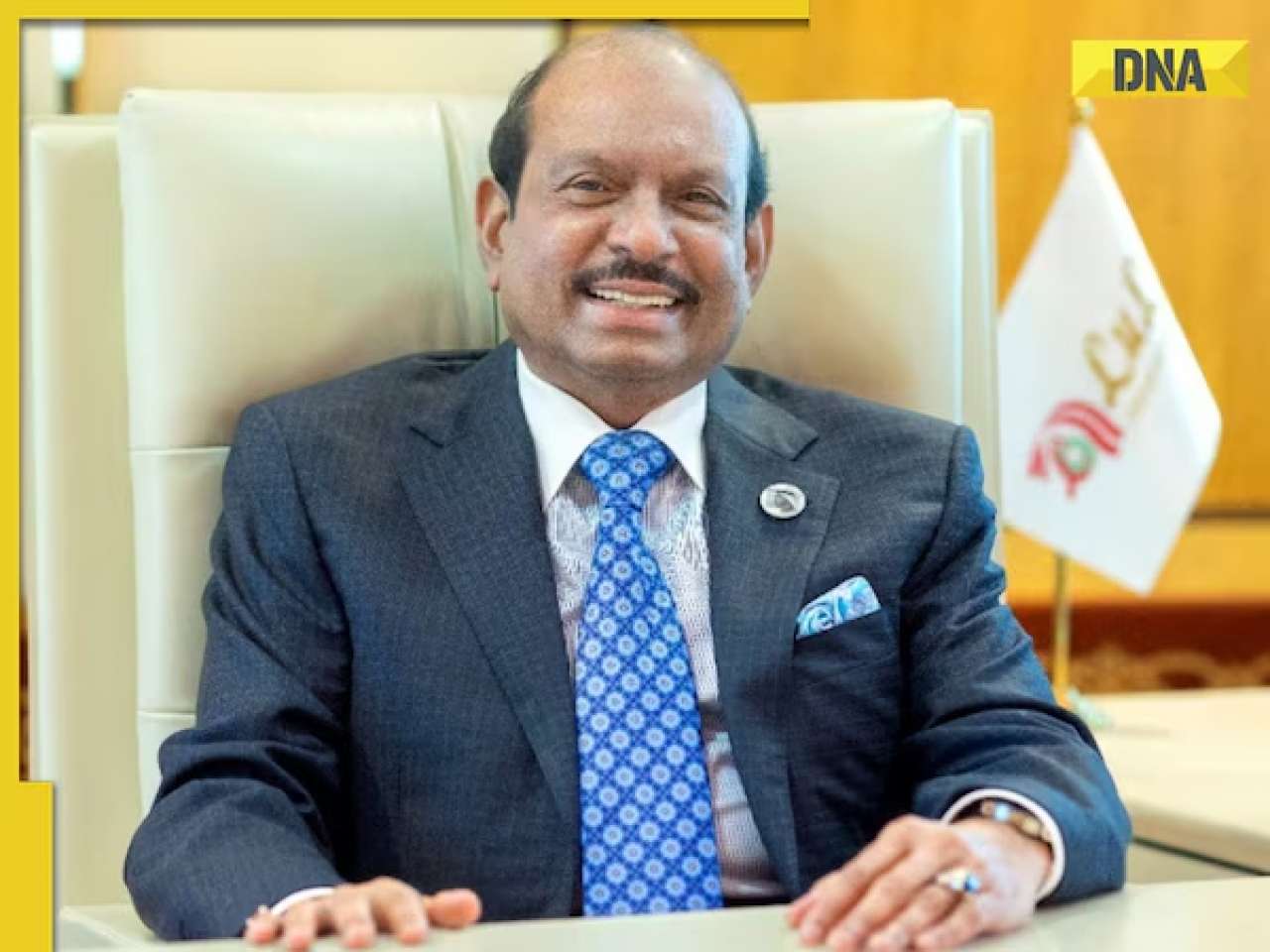












)
)
)
)
)
)